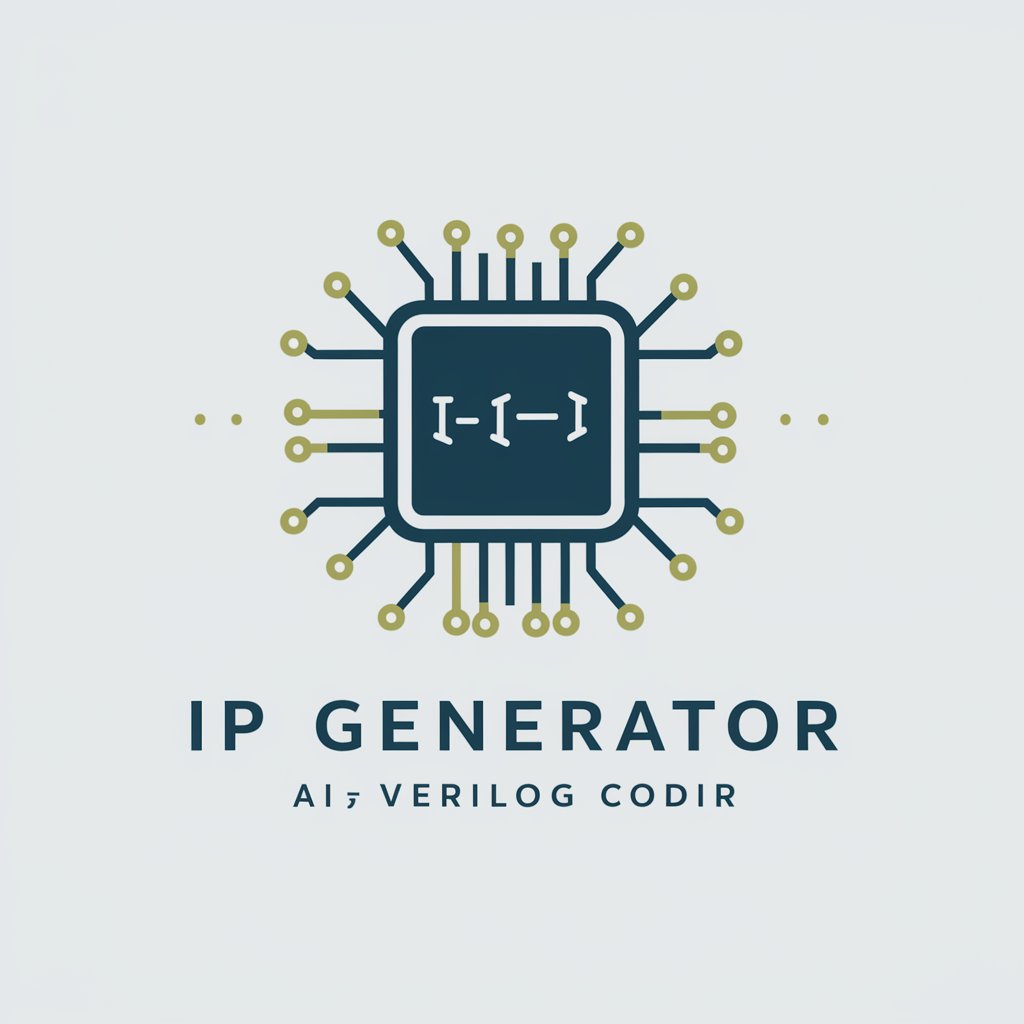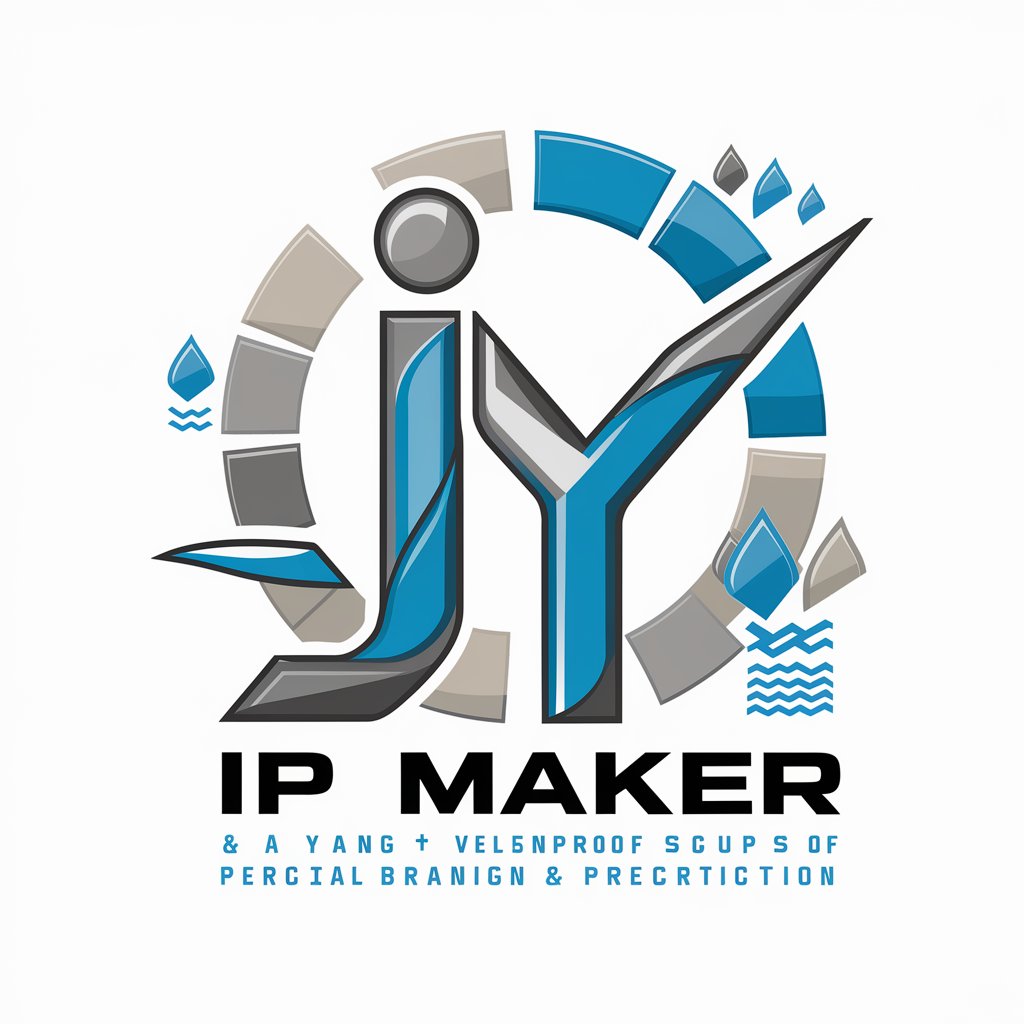IP Marketing - IP Asset Monetization

Welcome to IP Marketing, your partner in maximizing IP value!
Maximize your IP's earning potential with AI.
What are some effective strategies for marketing intellectual property in the tech industry?
How can I identify potential markets for my intellectual property?
What are the best practices for creating a compelling marketing message for IP?
How can I maximize the value of my intellectual property through licensing?
Get Embed Code
Introduction to IP Marketing
IP Marketing focuses on leveraging intellectual property (IP) assets for commercial gain, primarily through strategic marketing and licensing. The core purpose is to identify, valorize, and promote IP in a way that attracts potential licensees or buyers, thereby generating revenue and increasing the overall value of the IP assets. This involves understanding the market potential of IPs, crafting compelling narratives around them, and effectively communicating their value to the right audiences. For instance, a patent owner with a new technology might use IP Marketing to highlight its benefits and potential applications to attract companies interested in licensing the technology for their own products. Powered by ChatGPT-4o。

Main Functions of IP Marketing
Market Analysis
Example
Analyzing market trends and demands for a new software patent to identify potential industries and companies that could benefit from licensing the technology.
Scenario
An IP Marketing professional conducts a comprehensive market analysis to understand where a new software patent fits within the current technological landscape, identifying key players in sectors like tech, finance, and healthcare who might be interested in integrating this technology into their operations.
Value Proposition Development
Example
Crafting a compelling value proposition for a novel chemical process that reduces production costs and environmental impact.
Scenario
Developing a detailed marketing strategy that emphasizes the unique benefits and competitive advantages of a novel chemical process. This includes creating materials and presentations that clearly articulate how this process can help manufacturers save costs and meet sustainability goals, making it an attractive option for licensing.
IP Promotion and Networking
Example
Utilizing industry conferences, trade shows, and digital platforms to promote a groundbreaking medical device patent to potential licensees.
Scenario
Organizing and participating in events where key stakeholders from the medical industry gather, using these opportunities to showcase a groundbreaking medical device patent through demos, presentations, and one-on-one meetings with decision-makers from leading healthcare companies.
Ideal Users of IP Marketing Services
Inventors and Innovators
Individuals or small teams who have developed new technologies, products, or processes but lack the resources or expertise to market their IP effectively. These users benefit from IP Marketing services by gaining access to market analysis, strategic marketing plans, and networks that can help bring their inventions to the market through licensing or partnerships.
Research Institutions and Universities
These entities often generate a significant amount of IP through academic and research activities but may not have the commercial focus or capabilities to monetize these assets effectively. IP Marketing services can help them identify commercial partners, negotiate licensing deals, and promote their technologies to relevant industries.
SMEs with Proprietary Technologies
Small and medium-sized enterprises that have developed proprietary technologies may not fully capitalize on their IP assets due to limited marketing resources or expertise. IP Marketing can assist these companies in maximizing the commercial potential of their IP, either through direct licensing or by enhancing their product marketability.

How to Utilize IP Marketing
Start with a Free Trial
Begin your IP Marketing journey at yeschat.ai, where you can explore its capabilities through a free trial, no login or ChatGPT Plus subscription required.
Identify Your IP Assets
Catalogue your intellectual property (IP) assets. This could include patents, trademarks, copyrightable works, and trade secrets. Understanding what you own is crucial for effective marketing.
Define Your Target Market
Determine who would benefit most from your IP. This could be industries, businesses, or even geographic markets that are most likely to have interest in your IP assets.
Craft Your Marketing Strategy
Develop a strategy that highlights the unique value and potential applications of your IP. Consider channels such as direct outreach, digital marketing, and IP trade fairs.
Monitor and Optimize
Regularly review the performance of your IP marketing efforts. Use feedback and analytics to refine your approach and improve engagement with potential licensees.
Try other advanced and practical GPTs
JPG to PDF Converter
Simplify your document workflow with AI-powered JPG to PDF conversion.

PDF to JPG Conversion
Convert PDFs to JPGs effortlessly with AI

PDF to JPG Converter
Seamless PDF to JPG transformations, powered by AI

GIF to JPG Converter
Transform GIFs to JPGs effortlessly with AI

Transparent PNG Maker
Effortlessly remove image backgrounds with AI

WEBP to PNG Converter
Effortless conversion, powered by AI.

IP Insight
Empowering IP Strategy with AI

IP Creator
Empower Your Creativity with AI

IP Generator
Streamlining FPGA Development with AI-Powered Verilog Coding

IP Maker
Crafting Stories, Building Brands

IP Address Generator
Generate valid IPs instantly with AI

Taiwan Address Corrector
Accurate Addressing Made Easy

Frequently Asked Questions About IP Marketing
What is IP Marketing?
IP Marketing refers to the process of promoting and selling intellectual property (IP) assets, such as patents, copyrights, trademarks, and trade secrets, to generate revenue, often through licensing.
Who can benefit from IP Marketing?
Inventors, creators, businesses, and academic institutions with IP assets can benefit. It's particularly useful for those looking to monetize their intellectual creations through licensing or direct sales.
How does IP Marketing differ from traditional marketing?
IP Marketing focuses on the unique challenges of promoting intangible assets. It requires a deep understanding of IP law, the value proposition of the IP, and the specific needs of potential licensees or buyers.
Can IP Marketing help in protecting my IP?
While its primary goal is monetization, effective IP Marketing can also enhance IP protection by increasing its visibility and demonstrating its value, potentially deterring infringement.
What are some common strategies for IP Marketing?
Common strategies include direct outreach to potential licensees, participation in industry fairs and conventions, digital marketing campaigns, and leveraging IP marketplaces and brokers.
